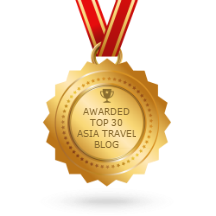Essential Travel Advice for Your Journey Through France
France is one of the most visited countries in the world, celebrated for its rich history, vibrant culture, world-class cuisine, and stunning landscapes. Whether you’re drawn to the romantic streets of Paris, the lavender fields of Provence, or the beaches along the French Riviera, preparing for your trip will make your experience even more enjoyable. Knowing what to expect before you arrive can help you travel with ease and fully embrace the charm of French life.
Understanding Local Etiquette
Respect for culture and tradition is important in France. A polite greeting goes a long way, so remember to say “Bonjour” when entering shops or restaurants. The French value courtesy, and simple gestures of respect can make interactions much smoother. Avoid overly casual behavior in formal settings, and be mindful of dining customs, such as not rushing through meals, as eating is considered a social experience.
Transportation Tips
France has an excellent public transportation system, making it easy to explore cities and the countryside alike. The metro and train networks are efficient, but it’s wise to buy tickets in advance during peak travel seasons. Renting a car can be useful if you want to explore rural areas, such as the wine regions or small villages. Keep in mind that driving in larger cities can be challenging due to traffic and parking limitations.
Money Matters
The euro is the official currency in France, and while credit cards are widely accepted, carrying some cash is useful for small shops, bakeries, or local markets. Tipping is not obligatory as service is usually included in the bill, but rounding up or leaving a small extra amount is appreciated. Always keep an eye on exchange rates if you’re using international cards.
Language and Communication
While English is spoken in tourist areas, learning a few basic French phrases will be very helpful and appreciated by locals. Simple expressions like “Merci” (thank you) and “S’il vous plaît” (please) show respect and effort. Having a translation app handy can also ease communication when traveling outside major cities.
Food and Dining Experiences
French cuisine is a highlight of any trip, from croissants in a Parisian café to Michelin-starred dining. To truly enjoy the experience, try regional specialties unique to each area. Be aware that meal times are observed more strictly than in some countries, with lunch typically served from noon to 2 p.m. and dinner starting after 7 p.m. Reservations are recommended, especially in popular restaurants.
Seasonal Planning
The best time to visit France depends on the experiences you’re looking for. Spring and autumn offer pleasant weather and fewer crowds, while summer is lively but often busy with tourists. Winter is perfect for enjoying Christmas markets or skiing in the Alps. Consider planning around local holidays and festivals to avoid disruptions or to join in the celebrations.
Conclusion
Exploring France is a journey filled with unforgettable moments, but preparation is key to making the most of your trip. From understanding local customs to navigating transportation and savoring French cuisine, being informed ensures a smoother and more rewarding travel experience. With the right knowledge and a spirit of adventure, France promises to be a destination that delights at every turn.








